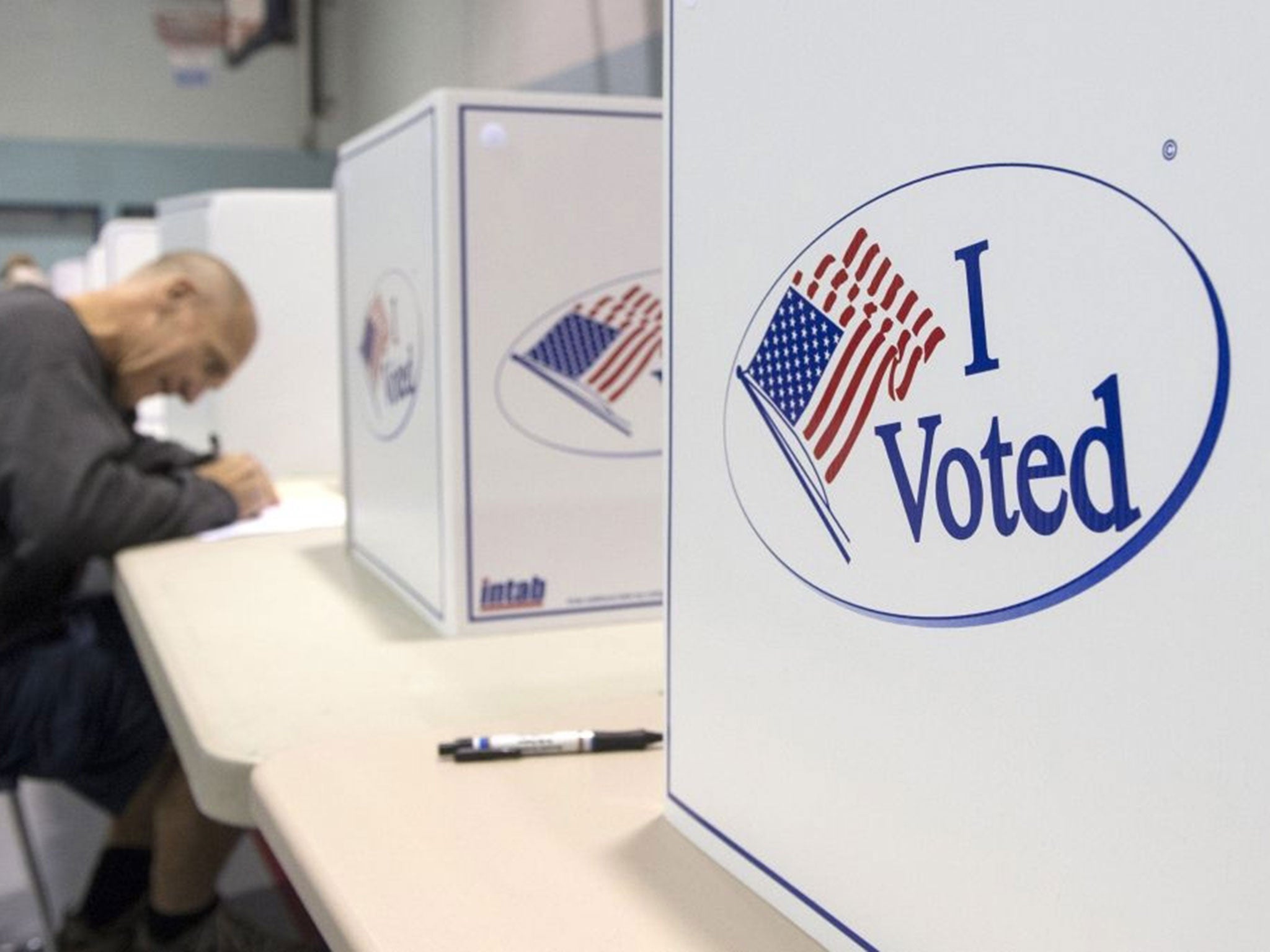Nobody cared about the midterms — Where did all the British US-election nerds go?
There was a time when American politics seemed 'perfect', but now it's all gridlock


The 2014 US midterm elections have come and gone, with the customary reams of diagrams, graphs and local colour from out-of-the-way places in down-home states such as Kentucky or Iowa. This time around, though, it seemed to me that the appetite on this side of the Atlantic for all things to do with an American election was somewhat smaller than it has been in the recent and not so recent past. It was as though – how shall I put it? – we had started to care less.
There were perfectly good reasons why these particular elections may have attracted less interest, and not just among observers. The low turnout also suggested a US mood short of excitement.
These were midterm elections in the President’s second term. The Congress just elected has only another two years to run under Barack Obama, so its potential for action is limited. The midterms offer the standard opportunity for those hostile to the President to make their voice heard, so the results often favour the party that is not in power in the White House.
This year everything ran according to that familiar script. The Republicans did well, reflecting Obama’s falling popularity – and declining power. They increased their majority in the House of Representatives and captured seven seats to secure their takeover of the Senate. Obama must now deal with a Congress in which both Houses have a Republican majority.
This is not necessarily a recipe for stalemate. It could be argued that it is actually an improvement on the previous situation, when there was a Republican House and a Senate with a small Democrat majority. With the two parties highly polarised, and the two Houses always fighting for supremacy, gridlock resulted.
There is now clarity: if Obama wants to accomplish anything in his last two years, he will have to find a way of navigating the Republican Congress. So far, this sort of wheeler-dealing has not been his forte. The Republicans also have a reason for broaching at least some limited co-operation, rather than risk entering the 2016 presidential-election season with a completely blank slate. The next year or so need not be completely devoid of interest.
Still, I wonder where all those British US-election nerds have gone – those who would calculate the swing in every state to at least two decimal points, who would read not just the party of the next president, but the composition of the next Congress in these electoral runes, and who would take pride in being able to pinpoint all the (admittedly few) non-gerrymandered congressional constituencies on a vast map.
For there was a time – was there not? – when American politics was seen by many over here as in some way the perfect politics. From the Declaration of Independence, to the Constitution and its amendments, the US was judged to have found most of the democratic answers. The separation of powers, the checks and balances, the way the congressional committees exercised oversight and the way the Supreme Court was constituted, even the geography of the “nation’s capital”, were seen as exemplary, but also as building blocks that the cognoscenti could play with, a little like political Lego.
Is this still true? And if it is, for how much longer? I wonder whether we are not now approaching, or even past, a watershed, when the American way of doing politics is becoming less relevant, when we are more aware – starting perhaps with those chads in West Palm Beach – of the defects in the US system and the differences between our attitudes and systems are starting to loom larger than the similarities. If this is so, then Obama’s presidency has surely made a contribution. So much excitement attended his campaign, including abroad, and so many now feel let down by what seem to be its relatively small achievements. Even the extension of health insurance seems less epoch-making than once it seemed – though history may judge otherwise.
Obama’s apparent lack of interest in the world, or at least its European part, has also played a role. And the sense of affinity that the UK, in particular, enjoyed with many, perhaps most, recent presidents – even George W Bush – has faded with Obama. Some have suggested that it is his “Hawaiian” outlook that makes him less scrutable to Europe, but perhaps it is just changing geopolitics and changing times.
The sharply polarised US political scene that has endured for all Obama’s presidency has also underlined some of the differences between there and here. We can describe Ukip, jokingly, as our “Tea Party”, but the real Tea Party is something that would not be replicated here. Similarly the congressional gridlock, and the viciousness of the debates that have accompanied it.
In short, US politics seems more alien now than in the recent past. And perhaps that is no bad thing. To be fascinated by the American way is one thing; to be seduced by its political methods and priorities, as we have been, is something else. Whisper it not, but could it be that, despite the rise of Ukip and despite the apparent revival of Euroscepticism, we have become just a little more European?
Join our commenting forum
Join thought-provoking conversations, follow other Independent readers and see their replies
Comments
Bookmark popover
Removed from bookmarks